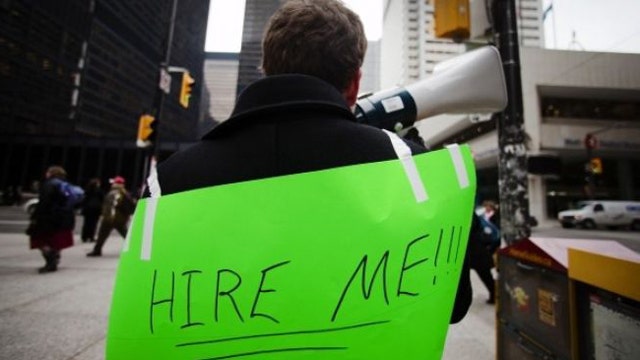Study: States that Raise the Wage See Decreased Jobs, High Teen Unemployment
As a part of his promised year of action, President Obama has continued to push for a hike in the federal minimum wage nationwide. But a new report shows raising the wage could have a negative impact on the still-recovering labor market.
The president signed an executive order in February hiking the minimum wage for new federal contractors to $10.10 an hour, and last week, Connecticut became the first state in the nation to raise the minimum wage in the state to the same level by 2017.
The federal minimum wage is currently $7.25 an hour, and hasn’t been raised since 2007. Fast food and retail workers nationwide have been protesting since November 2013 to raise it to $15 an hour.
At the heart of the debate over hiking the minimum wage is whether the move will stifle job growth and inadvertently disadvantage the group it was meant to help.
A new report from the conservative-leaning American Action Forum, shared exclusively with FOXBusiness.com, shows hiking the minimum wage hurts hiring.
The study looks at the 19 states that have minimum wages above the national rate of $7.25 an hour, as well as the 31 states in which the minimum wage is equal to the national average. The report finds that in 2013, a $1 increase in the minimum wage was associated with a 1.48 percentage point increase in the unemployment rate.
What’s more, this $1 hike also led to a 0.18 percentage point decrease in the net job growth rate, a 4.67 percentage point increase in the teen unemployment rate and a 4.01 percentage point decrease in the teenage net job growth rate. Overall, the AAF reports that high state minimum wages increased unemployment by 747,700 workers and reduced job growth by 83,300 jobs.
Douglas Holtz-Eakin, president of AAF and former director of the nonpartisan Congressional Budget Office, says that while supporting a hike in the federal minimum wage is “politically popular,” not enough people consider the economic ramifications.
“You can see the impact on net job creation,” Holtz-Eakin says. “It’s not that everyone gets laid off, it’s that hiring gets stopped.”
It’s also more likely to impact lower-skilled workers, he adds. “We raised the minimum wage through the great recession, and now teenage unemployment is over 20%,” he says, while the national average is 6.7% as of March 2014.
Teens seeking their first job might face tougher prospects in states with higher minimum wages, according to Pam Villarreal, labor expert at the National Center for Policy Analysis.
“Higher minimum wages hurt low-skilled and entry-level workers the most, and teenagers fit this category,” Villarreal says. “With the unemployment rate being so high right now among college graduates, minimum wage employers will hire them first, before they will hire teenagers who are still in high school.”
In states like Kentucky, where the unemployment rate is above the national average, at 7.8% but the minimum wage remains at $7.25, lawmakers are continuing to push a wage hike. A bill to raise the minimum wage to $10.10 an hour over the next three years passed the House in February and awaits a vote in the Senate.
Holtz-Eakin warns states that have high unemployment rates but have not yet hiked their wage should proceed with caution.
“They paid the price in the past and maybe raised the wage when labor markets were tight, so maybe it was a smaller price,” he says. “But you can’t fool Mother Nature. At some point, you are out of line with competitive pressures and it will hurt people looking for jobs.”




















